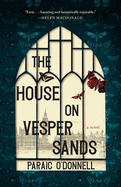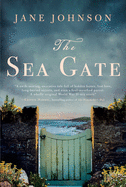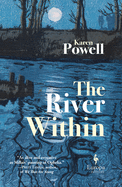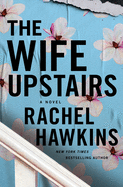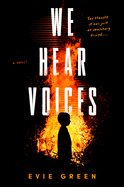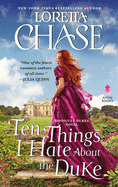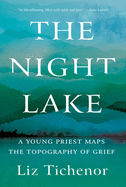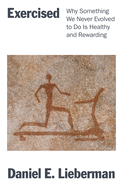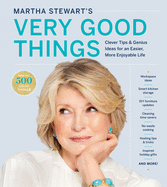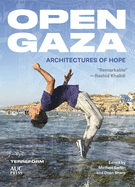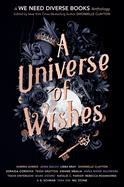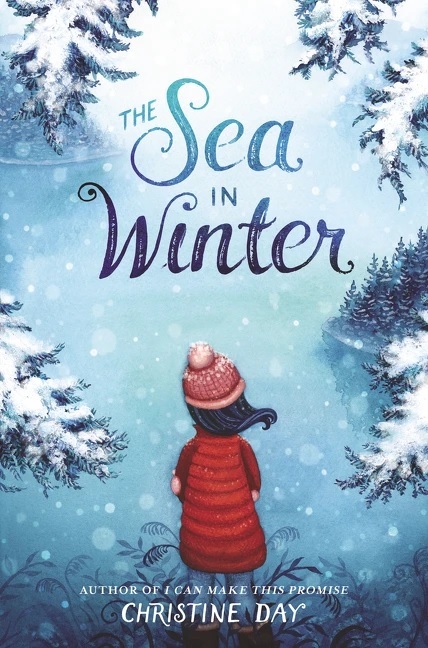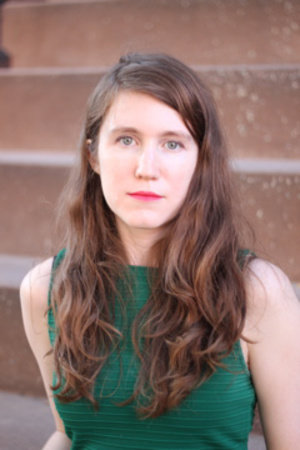 |
| photo: Jenny Zhang |
Anna North is a graduate of the Iowa Writers' Workshop and author of two previous novels, America Pacifica and The Life and Death of Sophie Stark. She's served as writer and editor at Jezebel, Buzzfeed, Salon and the New York Times and is now a senior reporter at Vox. She lives in Brooklyn. North's third novel, Outlawed, is available now from Bloomsbury.
How much research do your books require?
My first book is a dystopia, so I mostly made a lot of stuff up. For Sophie Stark, I did a fair amount of research about directing and female directors and how people put movies together. For this one, I went to Wyoming for a week, to the Willow Creek Ranch at Hole in the Wall, a working ranch on the site where the real gang lived. We drove through the valley and out to Hole in the Wall, and I took a bunch of photos. There's a little western history museum in Casey, Wyo., [the nearest town] that had a lot of funny stuff, like little mannequins dressed up in period costumes. There's a Fiddleback Ranch in the book, which is inspired by the Fiddleback cattle brand.
I researched the history of the real Hole in the Wall Gang, real "outlaws" (a funny and loaded term) and the history of what is now called the American West, but obviously had not been that for millennia before Europeans came there. I read up on the Arapahoe people living in Wyoming, and other Indigenous nations in the area, on Black cowboys and Black Americans in what is now the American West and on the history of the Americas in the 19th century.
A book called Lieutenant Nun informed my thinking on Outlawed. It's a memoir by a person who lived as a man, had a lot of adventures and fights and appeared to seduce women--sort of a swashbuckling adventure story--and then, at the end, is revealed to have been assigned female at birth, and enters a convent and becomes a nun. It's from the 15th century. I love this book. It's a window into the forever-long history of gender. For cis-normative American culture, there's this idea that gender has been very fixed and it's just now becoming fluid, but that's just not true.
Why reproduction as the central issue?
When I had the germ of this idea, I was with a friend, visiting a Shaker dwelling. Part of their religion was not having children. I was interested in writing about a separatist group that would live off in the woods together. The story morphed and changed a lot. When I focused on Ada, I thought of making her mother a midwife. I know a fair number of midwives; it was just in my mind. Early bits of the book went through a bunch of drafts as I was trying to figure out, what's the alternative history element? What's the focus of this society? This group is set off from society; what's set them off? What is that group like, what are its rules, its norms? The idea of a society that's obsessed with reproduction and that ostracizes women who are barren came late in the process. There were a bunch of planets orbiting around that needed a unifying theme: reproducing, not reproducing, different kinds of families, different kinds of groups, different kinds of isolation and togetherness. Ultimately the framework that worked for that was an alternate history. I didn't want this to be a one-to-one stand-in for America today. I wanted to think about the choices that people make, how they are constrained, what our society might look like if things were different.
Is this a feminist narrative that found its shape as a western, or a western that became a feminist tale?
Sort of both. The story only took off for me when I realized it was a western. I was thinking about the Shakers, writing about this group of people who live together, separate in this particular way, and I had them in New Hampshire, which is where I visited the Shaker dwelling. I've lived in New York for 10 years now, but I'd grown up in California, and I'm just not as good at writing about the East Coast as I am at writing about the West. As soon as I thought, I'm going to put these characters with some red rocks, it felt better.
I was reading Lieutenant Nun at the time. She didn't live in North America--she was traveling around Central America, I believe--but it's a colonial story of this "frontier" (obviously a loaded term). I was also reading a lot of Krazy Kat, set I think in Arizona--there's a lot of red rocks, and sheriffs. It's also gender-bending. It plays with sexuality, and you're not sure what gender Krazy Kat is--he switches pronouns a lot; there's a great essay in the New Yorker about this. Same-sex attractions are talked about fairly openly. I started thinking about the West as a space of, sometimes, freedom around gender and sexuality. The western states were some of the first states to give women, mostly white women, the right to vote. This could be a space of freedom--and obviously it's also a space of colonization and genocide and unfreedom. There were interesting interplays there. But I guess the short answer is it just only became a book when it became a western. Then things started to fall into place.
What makes a captivating protagonist?
I've always been interested in heroes. Traditionally, the hero is a male concept. The Odyssey, the Iliad: the heroes are male. I'm interested in recasting that as a female hero. I don't know if Ada is exactly a hero--in some ways the Kid is more the hero of the book. It's complicated, whether the Kid is likable or unlikable, heroic or unheroic. And maybe in a way I want the Kid to be both. Throughout my writing, I try to put someone in difficult circumstances and watch them rise to that occasion. That's a kind of heroism, I think.
We learn and grow with Ada--she's so curious.
I wanted to get across her inquisitiveness and desire for knowledge. I wanted to think in the book about knowledge and science as these double-edged swords. Ada puts a lot of stock in knowledge and in science, like this is what's going to convince people to not stigmatize other people, and obviously it doesn't always. I wanted to talk about instances where science has been used to really horrible ends. I wanted to explore that tension with her. But I sympathize with her. I also like to read books and learn things, so that was fun for me.
Is there anything new you're working on?
The pandemic has changed what I'm interested in working on next. In some ways it's made me crave speculative fiction more again, because I don't know what realism or reality is going to look like day to day. If I want to work on a long-term project, it has to be one that's not grounded in this reality, because I literally don't know what this reality is. We'll see--it's going to depend on what things look like when I can get back to my desk. --Julia Kastner
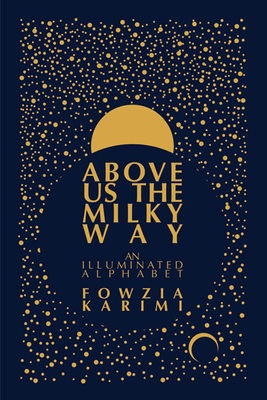 Above Us the Milky Way (Deep Vellum, $28), Fowzia Karimi's semi-autobiographical debut novel, is structured around the alphabet, telling a story in 26 parts enriched with photos and illustrations by the author. Karimi invites readers to join five enchanting sisters, relocated to the U.S. after the 1980 Soviet invasion of Afghanistan, as they reminisce about the tastes and smells of a home that no longer exists. A precious collage of memory fragments, the novel more than fulfills the magical promise of its celestial-themed cover inlaid with gold stars.
Above Us the Milky Way (Deep Vellum, $28), Fowzia Karimi's semi-autobiographical debut novel, is structured around the alphabet, telling a story in 26 parts enriched with photos and illustrations by the author. Karimi invites readers to join five enchanting sisters, relocated to the U.S. after the 1980 Soviet invasion of Afghanistan, as they reminisce about the tastes and smells of a home that no longer exists. A precious collage of memory fragments, the novel more than fulfills the magical promise of its celestial-themed cover inlaid with gold stars.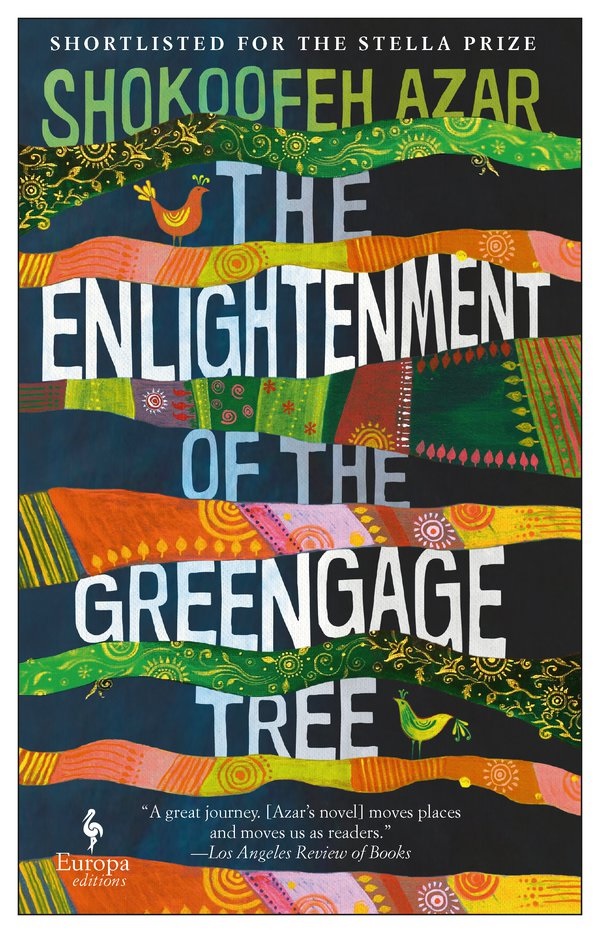 The ghost of a young girl named Bahar narrates The Enlightenment of the Greengage Tree (Europa, $18) by Shokoofeh Azar, translated from the Farsi by an anonymous translator and set in the immediate aftermath of the 1979 Islamic Revolution in Iran. Persian folklore and recollections of forbidden works of literature and philosophy offer mental escape to Bahar's family as they seek refuge from Revolutionary Guards in the ancient forests of Northern Iran. The colorful, pattern-layered cover gives nothing away of the revolution's terrifying reach.
The ghost of a young girl named Bahar narrates The Enlightenment of the Greengage Tree (Europa, $18) by Shokoofeh Azar, translated from the Farsi by an anonymous translator and set in the immediate aftermath of the 1979 Islamic Revolution in Iran. Persian folklore and recollections of forbidden works of literature and philosophy offer mental escape to Bahar's family as they seek refuge from Revolutionary Guards in the ancient forests of Northern Iran. The colorful, pattern-layered cover gives nothing away of the revolution's terrifying reach.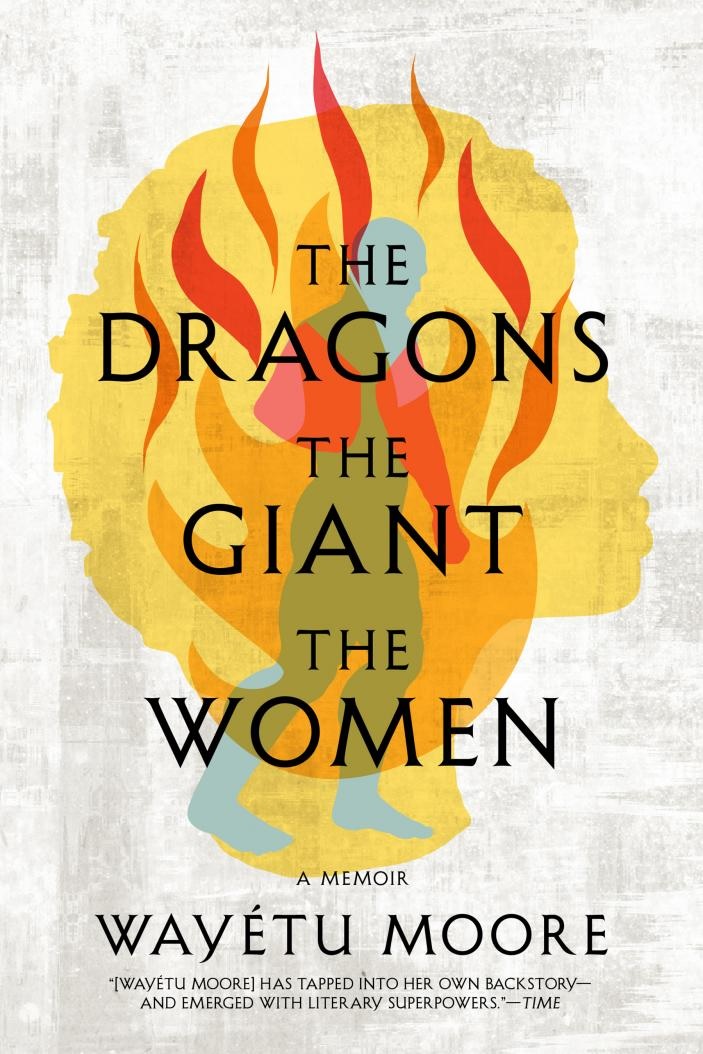 In contrast, the bold, vivid imagery on the cover of Wayétu Moore's stunning memoir, The Dragons, the Giant, the Women (Graywolf Press, $26) foretells the author and her family's daring escape out of Liberia during the country's first civil war in the 1980s. Paying tribute to the ancestral storytelling tradition of her elders, Moore shares mythically inspired childhood memories that helped her make sense of Liberia's upheaval. --Shahina Piyarali, reviewer
In contrast, the bold, vivid imagery on the cover of Wayétu Moore's stunning memoir, The Dragons, the Giant, the Women (Graywolf Press, $26) foretells the author and her family's daring escape out of Liberia during the country's first civil war in the 1980s. Paying tribute to the ancestral storytelling tradition of her elders, Moore shares mythically inspired childhood memories that helped her make sense of Liberia's upheaval. --Shahina Piyarali, reviewer


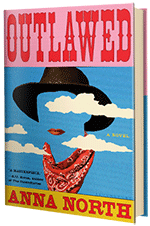



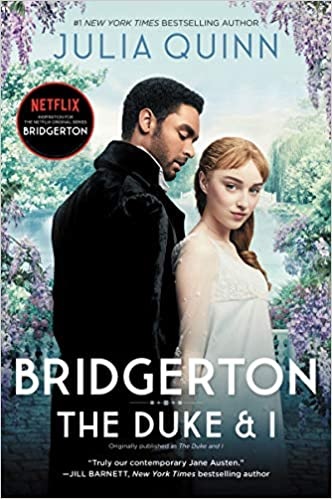 The streaming series Bridgerton, based on the Regency romance novels by Julia Quinn, premiered on Netflix on December 25, 2020, to rave reviews. It follows the high-society Bridgerton family, a close-knit clan of four daughters and four sons contending with debutante balls and other competitive social obligations of the upper crust. The series was adapted by Chris Van Dusen and produced by Shonda Rhimes.
The streaming series Bridgerton, based on the Regency romance novels by Julia Quinn, premiered on Netflix on December 25, 2020, to rave reviews. It follows the high-society Bridgerton family, a close-knit clan of four daughters and four sons contending with debutante balls and other competitive social obligations of the upper crust. The series was adapted by Chris Van Dusen and produced by Shonda Rhimes.